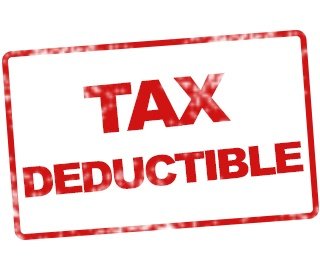are assisted living expenses tax deductible irs
IRC 7702B provides special rules on deducting qualified long-term care costs as medical expenses under IRC 213d2. Assisted living expenses may also be deductible if an individual requires supervision due to a cognitive impairment such as Alzheimers or another form of dementia.

Is Assisted Living Tax Deductible Five Star
The medical deduction for assisted living includes all the expenses if the primary reason for living in a facility is for medical care.

. The Internal Revenue Code permits a deduction for medical expenses to the extent that such expenses exceed 75 percent of adjusted gross income and are not otherwise reimbursed through insurance. According to the IRS any qualifying medical expenses that make up more than 75 of an individuals adjusted gross income can be deducted from taxes. A private letter from the Internal Revenue Service explains that meals and lodging costs for an assisted living stay may be deducted as medical expenses if the individual is in the facility for qualifying medical reasons.
Assisted living facilities can generally deduct a number of medical expenses included in the fees for assisted living and other qualified long-term care services on your taxes with some qualifications and restrictions. See the following from IRS Publication 502. Medical expenses including some long-term care expenses are deductible if the expenses are more than 75 percent of your adjusted gross income.
Medical expenses paid before death by the decedent are included in figuring any deduction for medical and dental expenses on the decedents final income tax return. Tax deductions are available to anyone in assisted living who has been diagnosed as chronically ill. If your loved one is in a memory care residence due to dementia some or all of the expenses of their care may qualify for a medical expense tax deduction.
Long-Term Care Assisted Living Deductions Any long-term care services such as assisted living nursing home care and in-home skilled nursing services can be deducted as medical costs under certain circumstances. Much of the uncertainty stems from the challenge of determining what portion of a seniors monthly fees are considered medical care. Qualified long-term care services have been defined as including the type of daily personal care services provided to Assisted Living residents such as help with bathing dressing continence.
There are some restrictions however so it is important to review the criteria for the full deduction. But did you know some of those costs may be tax deductible. Medical expenses that exceed 7 percent of your income qualify for tax deductions.
The IRS states that the expenses incurred in a Nursing Home as well as other homes for the aged ie. If you or your loved one lives in an assisted living community part or all of your assisted living costs may qualify for the medical expense tax deduction. According to the 1996 Health Insurance Portability and Accountability Act HIPAA long-term care services may be tax deductible as an unreimbursed medical expense on Schedule A.
Most families are unaware of the tax deductions available to a resident living in an assisted living community. Deducting Medical Expenses Health insurance plans dont cover every medical expense and that means patients and caregivers often have to cover the expenses out of pocket. Deducting Assisted Living Expenses Long-term care services are tax-deductible expenses on Schedule A according to the 1996 Health Insurance Portability Accountability Act HIPAA.
The full list of medical expenses that qualify for a tax deduction can be found on page 23 of the IRS Tax Guide for Seniors and in IRS Publication 502. If you your spouse or your dependent is in a nursing home primarily for medical care then the entire nursing home cost including meals and lodging is deductible as a medical expense. Simply add up the annual cost of assisted living subtract 10 of your gross income and the remaining balance is completely tax deductible.
As long as the resident meets the IRS qualifications see above all assisted living expenses including non-medical costs like housing and meals are tax deductible. Memory care is in the category of long-term care services which are deductible expenses under the 1996 Health Insurance Portability and Accountability Act HIPAA. Taxation CELA The Internal Revenue Code provides an income tax deduction for medical expenses which include qualified long-term services1.
If you are seeking to deduct the costs of a nursing home or assisted living facility you might be able to deduct anything that exceeds 75 of your income. How to Deduct Assisted Living Facility Costs By Robert C. If you or a loved one is living in an assisted living facility there may be some expenses that qualify as tax deductible.
Assisted livings are deductible as a medical expense when it is medically necessary to be there. This includes expenses for the decedents spouse and dependents as well as for the decedent. Dependent Status Dependent status means that an adult child or relative of parents or immediate family in senior living may qualify to be claimed as a dependent on tax forms.
To qualify the long-term care services must involve personal care services such as. To qualify for cost-of-living deductions there must be a plan of care prepared listing all of the services that the resident will receive to qualify for the deduction. Which means a doctor or nurse with diagnosing abilities has stated that the.
Chronic Illness and Tax Deductible Status. The medical expense tax deduction may be available to you or your loved one if they live in an assisted living community. If that individual is in a home primarily for non-medical reasons then only the cost of.
You should add the cost of memory care. In order for assisted living expenses to be tax deductible the resident must be considered chronically ill. The letter explains the types of conditions that would meet the standards in order to qualify these costs as tax deductible.
Tax deductions are the perfect example. If a resident is living at an assisted living facility for custodial care there might be specifications that qualify the expenses to be tax-deductible. If you or your loved one lives in an assisted living community part or all of your assisted living costs may qualify for the medical expense tax deduction.
The Internal Revenue Service IRS rules for assisted living expenses are laid out in IRS Publication 502 Medical and Dental Expenses. Individuals in assisted care or relatives supporting dependents in assisted living facilities can usually deduct some health care expenses as long as the sick individual meets certain qualifications. Assisted living can be deducted from your taxes.
Yes in certain instances nursing home expenses are deductible medical expenses. According to the IRS any qualifying medical expenses that make up more than 75 of an individuals adjusted gross income can be deducted from taxes. The tax deduction for an individual is.
Tax Deductions for Assisted Living. Assisted Living Expenses and Tax Deductions While some families arent aware that they may be entitled to a tax deduction others who do know about it find the process too confusing to navigate.

What Tax Deductions Are Available For Assisted Living Expenses

Is Assisted Living Tax Deductible Medicare Life Health

Can You Claim A Tax Deduction For Assisted Living The Arbors

Are Assisted Living Costs Tax Deductible Ask After55 Com

Are Assisted Living Costs Tax Deductible Ask After55 Com

Common Health Medical Tax Deductions For Seniors In 2022

Truck Driver Expense Spreadsheet Laobing Kaisuo Truck Driver Spreadsheet Trucks

Assisted Living Costs And Tax Deductions Summerset Assisted Living Community
